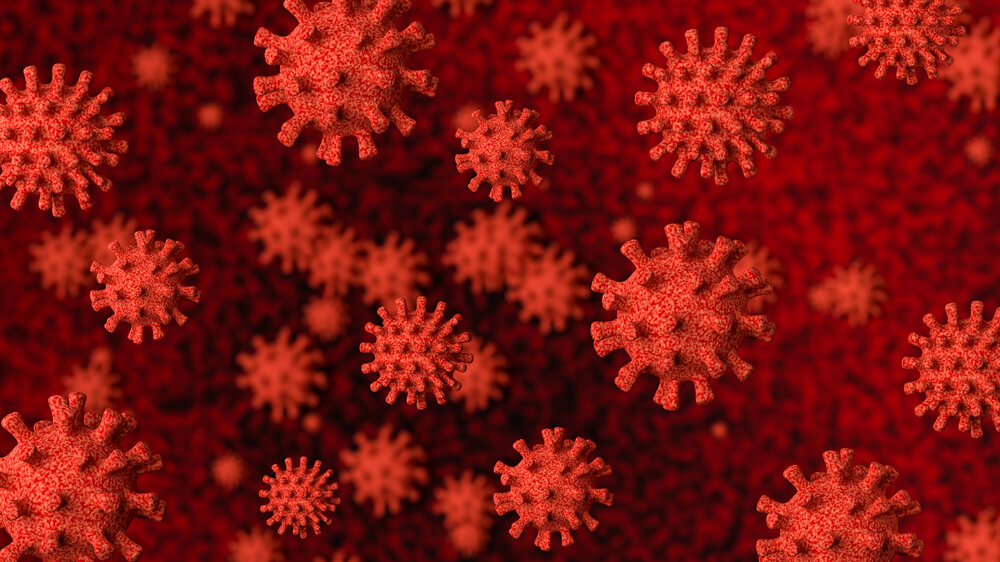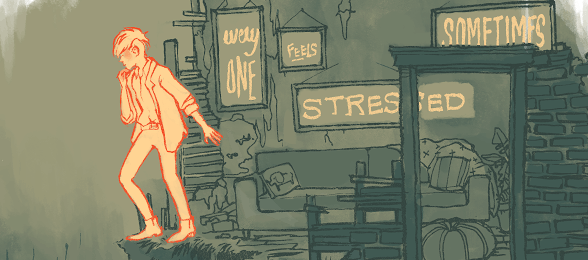Disabled People Are Not Simply Dispensable During a Pandemic
The following post is part of our series on perspectives from disabled and chronically ill people regarding COVID-19. This post is not intended as medical advice.
It’s hard to wash your hands to prevent the spread of coronavirus when you’re allergic to most bathroom hand soaps.
I have Mast Cell Activation Syndrome (MCAS), a condition where my body has allergic-type reactions to things I’m not actually allergic to. In addition to the fragrances in soaps, I also react to chlorinated water (i.e., most tap water). I carry safe soap and wipes in my purse, because otherwise I have to choose between a flare and contagion. Sometimes I’ve chosen to just wash my hands in allergens and suffer through the pain and swelling.
Soap and fragrance sensitivities are more common than you might think. Danielle, a chronically ill parent, is allergic to the foaming agent in most soaps. It gives her “a blistering rash,” and to recover she has to take steroids. The catch is that steroids make her more vulnerable to infection.
Rachael Rose is a sexuality coach/educator and disability advocate who has written a guide to fragrance allergies and chemical sensitivities. “I think businesses should always put fragrance-free soaps in their restrooms so that no one needs to choose between washing their hands and having an allergic reaction to the fragrances,” Rose says. “I encourage anyone who’s comfortable doing it to politely suggest this to the businesses they visit.”
Beyond allergies and chemical sensitivities, COVID-19 affects the larger disability community. Alice Wong is the host of the Disability Visibility podcast; in regards to coronavirus, Wong says, “I use a ventilator and have very little reserve when I catch a cold or flu. When I get sick, it can last weeks and take even longer to recover due to weight loss. I cannot imagine what would happen to me if I got the coronavirus.”
Wong admits that she’s “trying not to feel guilty” for buying supplies like masks, gloves and soap when she isn’t immunocompromised, even though the coronavirus could seriously affect her. “Right now I am trying not to overthink things and focus on keeping myself safe (washing hands, reducing my trips out of the house) and my home care providers safe.”
News coverage has repeatedly stressed that people shouldn’t panic about coronavirus, because the flu is more risky unless you are immunocompromised or have a pre-existing condition or are over 65. On Twitter, @wandarigby, who is immunocompromised due to a chronic illness, mused:, “Are chronically ill ppl a non factor in the world??? ‘Remain calm’ bc only them are at most risk??? Are we more dispensable bc we’re ill?? Are we not ppl too!”
Charis Hill, a professional disabled writer, speaker and model, echoed these concerns in a recent piece they wrote: “Plans and public messaging are drafted with only healthy people in mind as the audience, as if no one listening will be ‘those in poor health’ — and if they are, well, someone else will handle that, and it’s OK if they die.”
Disabled people are also expressing frustration that accommodations we’ve been told were impossible are now becoming the norm. Karrie Higgins, a disabled activist and writer, tweeted their frustration about the situation: “Are you seeing a pattern here? When disabled people NEED an accommodation, we are denied & gaslit. When abled people are affected, suddenly “impossible” things like a livestream are doable. Accessibility benefits everyone, but you only want it to benefit abled people!”
While I am just as frustrated at the apparent double standard around accommodations, I find my predominant emotion is fear, as well as sadness at lives lost to COVID-19. Others before me have compared COVID-19 to the AIDS crisis in the 1980s. The U.S. government’s lack of a timely response made both outbreaks worse. But what I cannot help thinking about is the gay men who by some twist of fate survived the AIDS crisis, yet had to bury so many friends and lovers. I think of films like Tongues Untied, which was made by Black gay men as a record because they knew that many in their community were dying from AIDS. I think of myself, growing up as a young queer person with a missing generation of elders.
We know that COVID-19 is more serious for those with underlying health conditions and particularly those who are immunocompromised. What does this outbreak mean for the Disability community? How many of my loved ones will be affected? How many loved ones will I lose?
In a recent article about the financial impact of COVID-19, The Telegraph went so far as to say, “From an entirely disinterested economic perspective, the COVID-19 might even prove mildly beneficial in the long term by disproportionately culling elderly dependents.” It didn’t take long for this outbreak to bring out eugenicist arguments. The use of the word “culling” here is particularly disturbing. As a disabled person who might be disproportionately culled, it is easy to despair at this situation.
Yet I also think of the heroic organizing done by the LGBTQIA+ community in the face of the AIDS crisis. From founding community health services like Gay Men’s Health Crisis to protesting for more research funding, the LGBTQIA+ community supported each other. It is my hope that in the face of this potential pandemic, the disability community supports each other as well.
Dawn M. Gibson, founder of #BlerdChat and #SpoonieChat, puts it best: “We all have a responsibility to contribute to public health through mutual respect and helpful habits….do your part to protect public health.”
About Rooted In Rights
Rooted in Rights exists to amplify the perspectives of the disability community. Blog posts and storyteller videos that we publish and content we re-share on social media do not necessarily reflect the opinions or values of Rooted in Rights nor indicate an endorsement of a program or service by Rooted in Rights. We respect and aim to reflect the diversity of opinions and experiences of the disability community. Rooted in Rights seeks to highlight discussions, not direct them. Learn more about Rooted In Rights




The medical crisis of the pandemy of coronavirus comes to increase moreover misery of the people with handicap in RDC, whereas the wars in repetition during several decades continue to make rage.
The intercommunity center for the people with handicap is worried by these problems. We ask the differents organizations which accompagnent the people with handicap to come us to assistance by bring equipment médicals, humanitary assistance and social with the handicapped people, affected by this disease coronavirus-19
Best regards,
IBUCWA LIPANDA Jean-Pierre
Coordinator